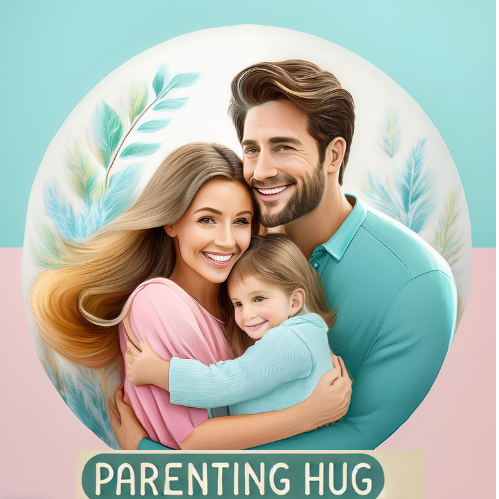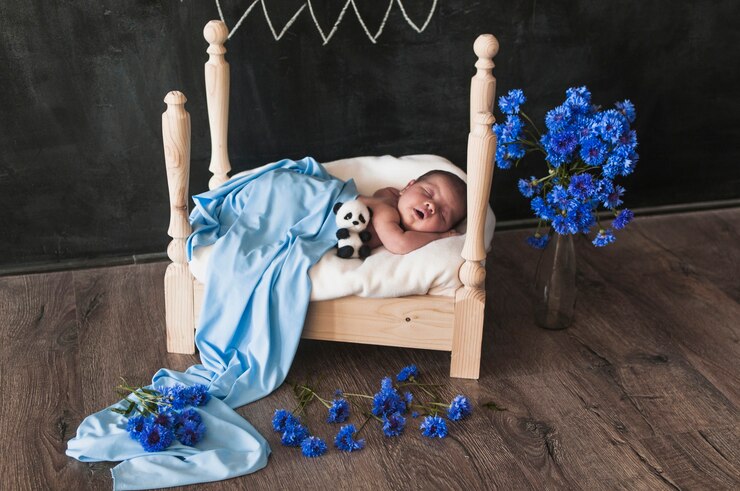What to Do if Your Baby Falls From the Bed:baby falling from bed
As a parent, nothing is more heart-wrenching than the moment you hear the unmistakable thud of your baby falling from the bed. In an instant, your mind races with worry, guilt, and fear. While accidents happen, and you’re certainly not alone in experiencing this, it’s essential to know how to respond calmly and effectively.
In this blog, we will explore the common causes of babies falling from beds, what steps to take immediately after the fall, signs that might require medical attention, how to prevent future accidents, and how to cope with the emotional stress that follows such an incident.
Why Do Babies Fall From the Bed?
Babies are naturally active and curious, especially as they begin to develop motor skills such as rolling, crawling, and pulling themselves up. Even before parents realize their baby is capable of moving around, they might find their little one has fallen off the bed.
Here are a few common reasons why babies fall from beds:
- Unexpected Movement: Babies grow and develop new motor skills quickly. They may roll over or crawl faster than expected, leading them off the edge of the bed.
- Heightened Curiosity: As babies begin to explore the world, they are curious about their surroundings. Reaching for objects, toys, or even a parent’s attention can lead them to the edge of the bed without understanding the danger of falling.
- Improper Bedding: Soft, cushioned bedding might seem cozy, but it can sometimes create an uneven surface that causes babies to roll or slip off the bed.
- Lack of Guardrails: If the bed doesn’t have guardrails, a baby can easily roll off, especially when left unattended for even a brief moment.
Immediate Steps to Take After a Baby Falls From the Bed
The sound of your baby falling is alarming, but it’s important to stay calm and assess the situation immediately. Follow these steps after your baby falls:
1. Stay Calm and Assess
Your first instinct may be to panic, but staying calm is essential to responding effectively. Rushing to pick up your baby without evaluating the situation could lead to further injury if they’ve hurt themselves. Take a deep breath, and quickly observe how your baby is acting.
2. Check for Visible Injuries
Once you’ve calmed down, carefully look for any visible injuries, including:
- Bruising or swelling on the head, face, or limbs.
- Cuts or scrapes that may have occurred during the fall.
- Any abnormal positioning of the limbs that could indicate a fracture or dislocation.
3. Monitor Their Behavior
It’s important to closely observe your baby’s behavior immediately after the fall. Look for any changes in behavior, including excessive crying, irritability, or lethargy. Babies often cry after a fall because of fear or pain, but if your baby quickly calms down and behaves normally, that’s a positive sign.
4. Check for Signs of Serious Injury
Even if there are no visible injuries, a fall could still cause internal issues. Here are key signs that indicate your baby might need immediate medical attention:
- Vomiting: Vomiting more than once after a fall could signal a head injury.
- Loss of Consciousness: If your baby lost consciousness or is unresponsive, it’s important to seek medical help right away.
- Limb Immobility: If your baby isn’t moving their arms or legs as usual or seems to favor one side, there may be an injury like a fracture.
- Unusual Drowsiness: If your baby becomes excessively sleepy or difficult to wake, it could indicate a concussion or head trauma.
- Seizures: Any twitching, jerking movements, or convulsions after a fall require immediate medical attention.
5. Call Your Pediatrician
Even if your baby seems fine after the fall, it’s a good idea to call your pediatrician and explain what happened. They will likely ask about any symptoms and give advice on whether your baby needs to be seen. Sometimes, a pediatrician may suggest bringing your baby in for a check-up to rule out any hidden injuries.
When to Seek Emergency Medical Care
While minor bumps and bruises are common, certain situations require immediate medical care. If any of the following symptoms are present after your baby falls, call emergency services or take your baby to the nearest hospital:
- Persistent Vomiting
- Loss of Consciousness or being non-responsive
- Severe Bruising or swelling on the head
- Unusual Breathing Patterns
- Bleeding from the Nose, Mouth, or Ears
- A Seizure
- Crying that Doesn’t Stop
Emergency medical attention is critical if you suspect a concussion, skull fracture, or internal bleeding.
How to Prevent Baby Falls From the Bed
Once your baby has fallen, it’s natural to want to prevent this from ever happening again. Here are some practical steps to make your sleeping environment safer for your little one:
1. Use a Crib or Bassinet
The safest place for babies to sleep is in a crib or bassinet with high guardrails, which prevents them from rolling or crawling out. Ensure that the crib meets safety standards and is free of large gaps where a baby could get stuck.
2. Invest in Bed Rails
If co-sleeping with your baby or if your baby sleeps on an adult bed, invest in secure bed rails to prevent them from falling off the edge. These rails create a barrier and provide added security during sleep or naps.
3. Place Pillows or Cushions on the Floor
In case your baby moves around a lot during sleep, placing cushions or pillows on the floor beside the bed can minimize the impact of a fall.
4. Keep the Bed Away From the Wall
If the bed is near a wall, make sure there’s no gap between the bed and the wall where your baby could fall and become trapped.
5. Never Leave Your Baby Unattended on the Bed
One of the most important tips is never to leave your baby alone on a bed or elevated surface. If you need to step away, place your baby in a crib, playpen, or other secure area.
6. Supervise Tummy Time
As your baby becomes more active during tummy time, they may begin to roll around. Supervise closely, especially when they’re near the edge of the bed or on a raised surface.
Coping with Guilt After a Fall
It’s completely natural to feel an overwhelming sense of guilt if your baby falls from the bed. You may replay the incident in your mind, wondering how you could have prevented it. Here are some tips to help you cope:
- Remember That Accidents Happen: Babies are unpredictable, and even the most vigilant parents experience accidents. Falling from the bed is one of the most common childhood injuries, and it doesn’t mean you’re a bad parent.
- Learn From the Experience: Instead of focusing on guilt, think about what steps you can take to prevent future falls. Whether it’s using guardrails or setting up a safer sleep space, every parent learns as they go.
- Talk About It: Share your feelings with friends, family, or other parents. You’ll likely find that many parents have gone through the same experience, which can be reassuring and help reduce your guilt.
- Focus on Your Baby’s Wellbeing: The most important thing is your baby’s health. If they’re fine after the fall, take comfort in the fact that you responded quickly and appropriately.
Conclusion
A baby falling from the bed can be a frightening experience for any parent, but it’s essential to stay calm, assess the situation, and take the necessary steps to ensure your baby’s safety. While minor falls often don’t result in serious injuries, it’s important to be aware of the warning signs that could indicate something more serious. With careful observation, a calm response, and preventative measures in place, you can minimize the risk of future falls and keep your little one safe.
baby falling from bed

